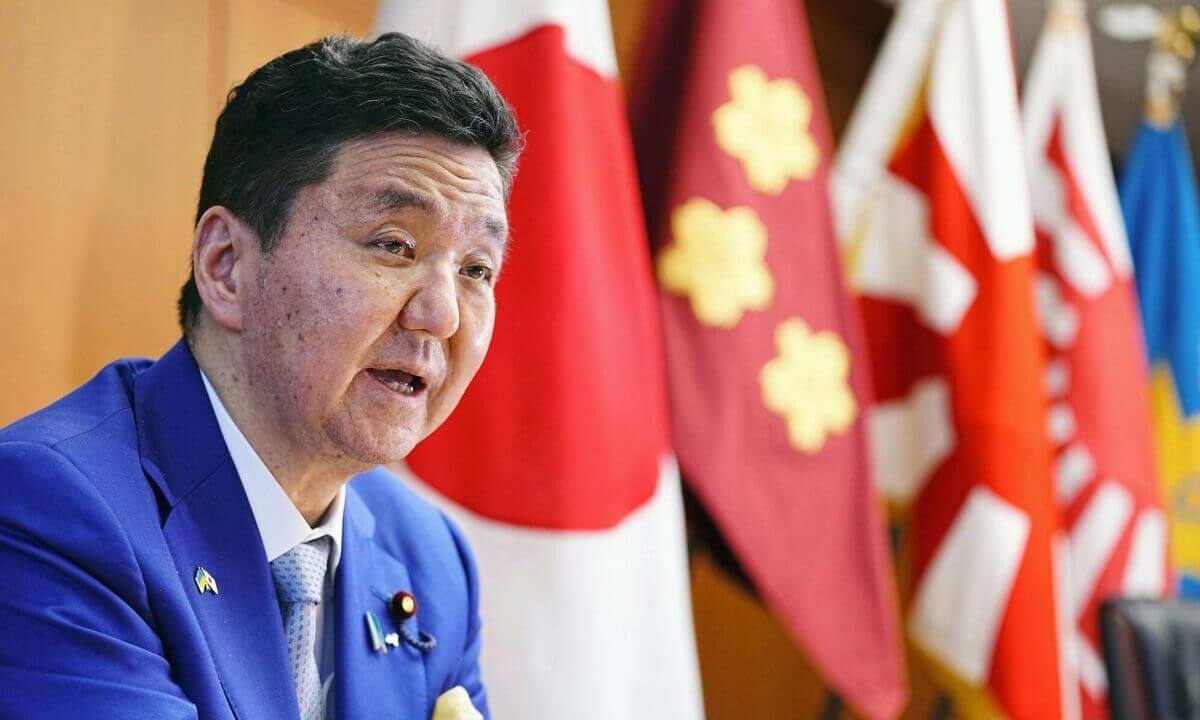Japan protested South Korea’s demands that it halt an ongoing survey in Japan’s own exclusive economic zone (EEZ) near its western prefecture of Nagasaki.
The Japanese Coast Guard (JCG) said one of its ships was carrying out a seabed survey off the Goto Islands on Monday afternoon when a South Korean coast guard vessel radioed the demand.
The site that raised the dispute is located about 110 kilometres northwest of the Japanese island of Mishima. According to Japanese officials, the South Korean coast guard claimed that the area in question is part of its waters and therefore the survey was illegal. It thus asked the Japanese ship to leave immediately.
Tokyo responded by saying that its vessel’s research project was legitimate, as it was within its own EEZ. It also asked the South Korean guards to rescind their demand and move away from the Japanese vessel.
South Korea reportedly radioed the demand seven times at intervals of 60 to 90 minutes yesterday. Despite these warnings, however, the Japan Coast Guard will continue its survey, which began in mid-August and is scheduled to finish by the end of September. The JCG, which lodged the protest through the foreign ministry, claims that this was the fourth time that Seoul has asserted its sovereignty in its waters, and the first since January 2021.
In a reversal of a similar incident earlier this month, Japan lodged a protest against a South Korean vessel that was carrying out a marine survey in Japan’s EEZ around the Takeshima Islands in the Sea of Japan. Japan claims ownership of the islands, but they are effectively controlled by South Korea, whose government recognises them as the Dokdo Islands.
Japan’s foreign ministry reported that in what appeared to be a marine survey, a South Korean survey ship was seen “dropping a wire-shaped object” into the sea in the EEZ around the Shimane Prefecture islands. It further asserted that Seoul had carried out the operation without seeking its permission. The ministry further said that the ship did not respond to JCG’s questions about what it was doing in the area. In this regard, Takehiro Funakoshi, the director-general of the Japanese foreign ministry’s Asian and Oceanian Affairs Bureau, lodged a protest to a minister at the South Korean Embassy in Tokyo, calling for the activities to be immediately halted.
The JCG website states that any foreign vessel conducting research activities in its EEZ is required to obtain Tokyo’s consent, based on the United Nations Convention on the Law of the Sea (UNCLOS). It noted that in recent years, “many research activities” have been carried out by “foreign oceanographic research vessels” that have not sought its permission and engaged in “unusual behavior.” To this end, it said that the JCG conducts “warning and surveillance by patrol vessels and/or aircraft, and when any unusual behavior is found,” and “acts appropriately in cooperation with related ministries and agencies, such as confirming the status and purpose of the behavior and requesting the vessel in question to stop its activities.”
A South Korean court ordered that assets seized from #Japan’s #Mitsubishi Heavy Industries be sold to compensate forced labourers from #WWII. The unprecedented order prompted a protest from #Tokyo on Tuesday. Find out more!https://t.co/mDIS5MVlu3 pic.twitter.com/DPQXcXU2Wj
— Statecraft (@statecraftdaily) September 29, 2021
In recent times, the relationship between the two has been challenged by several diplomatic tiffs. Last year, South Korea’s Defence Ministry published a white paper that downgraded Japan’s status from “partner” to “neighbour,” which Seoul said was because Tokyo had removed South Korea from its list of preferential export nations in 2019. The document also blamed Japan for “stalemating ties” with South Korea by making “unilateral announcements that misrepresented facts,” referring to Japan’s disputed claim to the Dokdo Islands and a military encounter between a Japanese surveillance plane and a South Korean vessel in December 2018, when Japan accused South Korea of violating the Code for Unplanned Encounters at Sea by aiming the vessel’s fire-control radar at a plane.
Furthermore, in 2018, South Korea’s Supreme Court ordered Japanese companies Mitsubishi and Nippon to “compensate South Koreans forced to work in its factories” during Japanese colonial rule. Following this, last August, a South Korean court began proceedings to liquidate assets seized from Japan’s Nippon Steel Corp, which had refused to comply with a Supreme Court decision to award $8,400 each to four former World War II workers. In fact, South Korean victims of wartime labour conscription sued the Japanese companies in the 1990s. However, Japanese courts ruled in favour of the companies, leading the victims to take their cases to South Korean courts instead.
Prior to this, in 2015, the two countries sought to settle the dispute over sexual slavery, announcing a “final and irreversible” agreement. As part of the deal, then-PM Shinzo Abe issued an apology and released $8 million for a compensation fund. However, many South Koreans did not accept the agreement and the victims even refused the money in protest. Former South Korean President Moon Jae-in shut down the fund in 2018, reigniting tensions once more.
In recent months, however, the two sides have attempted to set aside their differences. After his electoral victory back in March, South Korean President Yoon Suk-yeol who has promised to restart reciprocal visits between their heads of state in order to “investigate the truth of the past and put our heads together over the problems that should be solved.”
Furthermore, during a meeting between their foreign ministers last month, the two sides agreed to an “early resolution” of longstanding bilateral disputes through “expedited consultations.” In fact, the meeting in Tokyo marked the first time that South Korea’s top diplomat had travelled to Japan in more than four years in order to have one-on-one talks with their counterpart.

